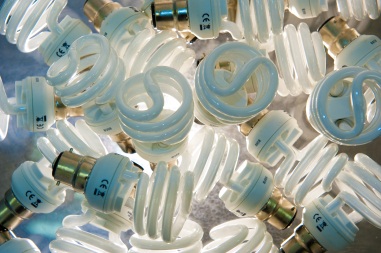Responses to the Government's Waste Electronic and Electrical Equipment (WEEE) consultation show that there is widespread appetite for an overhaul of the existing regulation, to the relief of many within the lighting industry.
The consultation had proposed four options for consideration: remaining with the status quo; introducing a national compliance scheme; setting targets for compliance schemes, with a 'compliance fee' if targets are not met; or matching collection sites to collection schemes.

According to a summary of the consultation responses released by the Department for Business Innovation & Skills (BIS) last week, options three and four met with most approval.
There were 256 responses in total during the consultation period from April to June. The main stakeholders included producers, local government, trade bodies, producer compliance schemes, as well as charities and waste management companies, and the majority were in favour of change. The option of 'doing nothing/continue with the current system' rated lowest, with 59 per cent selecting it as their least preferred. The prospect of a national compliance scheme was also unpopular, with 93 per cent ranking it as their third or fourth option, many citing it as monopolistic.
The Joint Trade Association, a group of eight trade associations including the Lighting Industry Association, as well as four WEEE producer compliance schemes such as Recolight and REPIC, welcomed the "strong support for major reform of the UK WEEE system". Nigel Harvey, CEO of Recolight, said that this strong level of support would give the government "a powerful mandate".
"The responses make it clear that option one, the status quo, is not sustainable," said Dr Philip Morton, CEO of REPIC. "It is fantastic to see so much alignment between the various stakeholders and their support for options three and four."
The third option of targets for compliance schemes received support across all respondent groups, with 95 per cent choosing it as their first or second preference.
Option four, of matching collection sites to collection schemes, is favoured particularly among producers and their trade associations, with 116 respondents choosing it as their most preferred solution. According to BIS, many producers stated that of all the options for change, this would cut their compliance costs the most.
Both options would remove the "must buy" market for WEEE evidence, said Harvey, "which is a cause of excessive costs in the current system". The current system is open to abuse as it ensures the holder of any household waste has a guaranteed buyer, irrespective of cost. Harvey added that the lighting industry, although not as directly affected by the current system and cost issues as other electricals producers, had "avoided what could have been a major problem; the worst case scenario would have been that option one prevails".
There was also high level of support across all stakeholder groups for the proposal to include LEDs in the same WEEE category as gas discharge lamps, with 84 per cent of respondents in favour and particularly strong support from lighting industry trade bodies and lamp producers, according to the summary.
However, it added that there was some concern among new market entrants that produce LED lamps and have never placed GDLs on the market that their compliance costs would increase, given that GDLs are considerably more expensive to recycle than LED lamps, while the latter would not become waste to any significant degree for a number of years.
The government will release a draft regulation towards the end of September, followed by another period of consultation, before it is brought before Parliament. The objective is to bring the new law into force in January, in time for the February deadline to implement changes in the European Union WEEE directive in national law.
Ernest Magog, CEO of Lumicom, rang a note of caution, however. "The summary gives no indication of the government's intentions, which is what we really need to know in order to plan for next year. We have to wait until September, before we can find out what BIS intends to do… These are the big issues of the day, particularly the 'matching process'. Let's hope they get it right this time."





